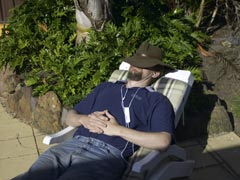 This was a very rewarding experiment in a couple of ways. Firstly, it clearly demonstrated just how effective the '30 day' approach is (there are a lot of life changes you can make if you tell yourself it's only for a month - and by then you may not wish to change back); secondly it threw quite a bit of light on the notion of biphasic sleeping. Here are a few things I discovered during that time.
This was a very rewarding experiment in a couple of ways. Firstly, it clearly demonstrated just how effective the '30 day' approach is (there are a lot of life changes you can make if you tell yourself it's only for a month - and by then you may not wish to change back); secondly it threw quite a bit of light on the notion of biphasic sleeping. Here are a few things I discovered during that time.
The 90 minute sleep cycle
I've gone from a skeptic to a true believer on this one. The idea that in quality sleep the cycles are around 1.5 hours in length not only seems plausible, but highly likely. Think back to the last really good night's sleep you had (woke up feeling refreshed, ready to take on the day) chances are it was a multiple of 1.5 hours (4.5, 6, 7.5 and 9 hours are all quite common). By forcing myself to adapt to multiples of this, I had more feelings of 'that was a good night's sleep' than usual.
Adaptation period
It took around a week to adapt to the new structure, which was/is:
- a 90 nap starting around 19:00 (this time varies slightly according to how tired I feel on the day)
- a longer sleep of 4.5 hours starting around 02:00
In total that's 6 hours per day, or 42 hours per week (giving me a 14 hour bonus on a typical 7 x 8 hour week).
There are a few things to be aware of with the length of this adaptation period. The first is to watch your caffeine intake. Now, I'm certainly not going to be hypocritical enough to suggest that you give it away altogether (I'm enjoying a cup of coffee whilst writing this); however I would suggest that having three double espressos 30 minutes before a nap is a bit much. Use your judgement.
The second is sugar intake. As with coffee, use your common sense. A bit of maltodextrin in a shake certainly isn't going to kill you, but try to stay away from the jam doughnuts.
The third consideration - perhaps related to the previous two - is the stress factor. If you come home from work every day fired up about something-or-other, don't take your nap immediately afterward. The best routine (for me) seems to be work -> workout -> eat -> sleep. There's nothing like throwing a bit of iron around to help alleviate stress.
Impact on strength training
It has to be said that I seem to favour the frequent, short workout approach - a few sets of rack pulls there, a few sets of floor presses there. Rare is the day which doesn't include some form of strength training.
My routine was like this prior to the start of biphasic sleeping, and doesn't seem to have been affected at all by it. I was fortunate enough to avoid serious injury throughout the period of the test, and there doesn't appear to have been any impact on recovery. DOMS still rears its ugly head occasionally. The thought of an ice bath still feels me with dread.
Productivity
There are two major considerations here. The first is that the periods just prior to and just following sleep are always less productive. Think for a minute of all of the projects you've completed 2 minutes after waking up, or when you're about to attain 'qwertyface' (passing out through tiredness at the computer). These periods vary from person to person and day to day, but around 15-20 minutes seems pretty typical.
Biphasic sleeping doubles the number of these periods. This means that instead of 30-40 unproductive minutes per day you now have 60-80. However, you've gained - for an 8-hour-per-day sleeper - 2 hours per day. An extra hour of productive time per day? I'll take that more than happily.
The second consideration is the quality of that productive time. This is where it becomes difficult to state just how much more productive I feel than a month ago (although the quantity of articles written for this and other sites is probably a good indicator); particularly as I've been intentionally monitoring my productivity for a few weeks now. That monitoring in itself provides a productivity boost (nobody wants to write down '30 minutes just surfing the internet, reading emails and generally slacking off').
More refreshing
Together with the productivity change in the difficult-to-measure department is the improvement in the refreshing quality of sleep. Aside from a few days (with a known cause of poor sleep) and the adaptation period - which was always expected - I've had more 'leap out of bed, ready to face the day' mornings than usual. As irritatingly happy as that may sound (particularly if you're reading this over your morning cup of coffee), it makes a tremendous difference in the way the day's problems are faced and resolved.
Dreams
I was pleasantly surprised that a 90 minute cycle included the deep sleep and dream recall that occasionally accompanies a 7.5 hour night. This dream recall didn't really begin until I was past the adaptation phase, and was able to wake up naturally just before the alarm went off.
If you're not used to remembering your dreams, this may not seem like much of a benefit; however the dream recall is usually associated with feeling refreshed, which is an obvious benefit for everyone.
 Via
Via 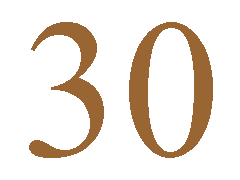 Final day of the experiment (though I'll definitely continue biphasic sleeping - too many positives to ignore). This morning I woke feeling refreshed, with a mixed blessing of dream recall quickly replaced by thoughts of the day's schedule. Less than five minutes after waking I was up and running, but I'd almost completely forgotten my dreams.
Final day of the experiment (though I'll definitely continue biphasic sleeping - too many positives to ignore). This morning I woke feeling refreshed, with a mixed blessing of dream recall quickly replaced by thoughts of the day's schedule. Less than five minutes after waking I was up and running, but I'd almost completely forgotten my dreams. This article is the second part of the
This article is the second part of the 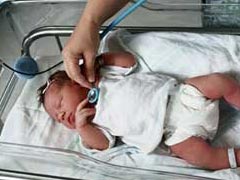 Typical resting pulse rates
Typical resting pulse rates Stimulants: caffeine is perhaps the most common - so avoid that cup of coffee before checking your pulse. Other stimulants include cigarettes, amphetimines, decongestants, diet pills and asthma medications.
Stimulants: caffeine is perhaps the most common - so avoid that cup of coffee before checking your pulse. Other stimulants include cigarettes, amphetimines, decongestants, diet pills and asthma medications.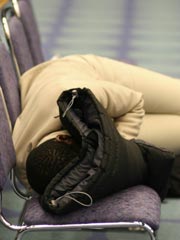 Rest breaks
Rest breaks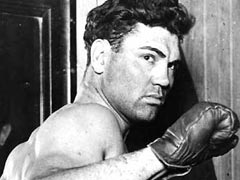
 Want more
Want more  According to a report in this month's issue of
According to a report in this month's issue of 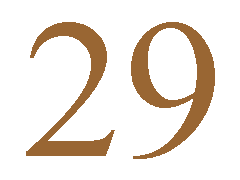 A bit of oversleeping, but only 40 minutes. I'm not at all concerned by that; particularly following yesterday's change to the routine.
A bit of oversleeping, but only 40 minutes. I'm not at all concerned by that; particularly following yesterday's change to the routine. John Du Cane conducts
John Du Cane conducts  Another great video compilation [
Another great video compilation [